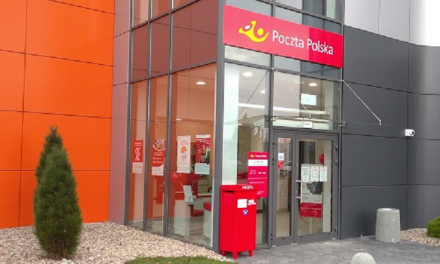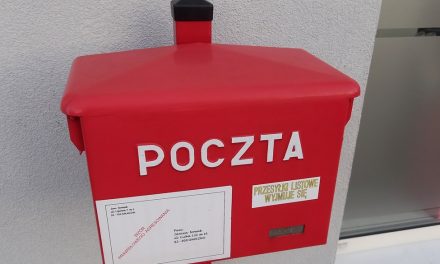
EU reforms pose challenge to Polish state monopolies
The European Commission (EC) is opening up the EU's postal market to cross-border competition, and Poczta Polska must now whip itself into shape to compete with its European counterparts. And as the EU presses ahead with internal market reforms, many of Poland's state monopolies could find themselves forced to compete with foreign companies on their own turf.
The EC has cracked open the postal market, which could be the first step in dismantling barriers to sectors traditionally controlled by state giants. Poczta Polska is in for a rough ride, as it will have to transform itself to cope with competition from foreign and domestic firms; and the Polish antitrust regulator is also taking a harder line in other sectors. Last week, the EC put forward a proposal to fully open EU postal markets to competition by 2009, in line with a target date set out in Poland's current Postal Directive. "In preparing the proposal, we have put consumer and user needs first. With full market opening in 2009, we can look forward to more innovation, better services and improved efficiency," said Internal Market and Services Commissioner Charlie McCreevy. "Without it, EU postal markets will be increasingly unable to meet the challenges of the 'communications revolution.'" In two years' time, Poczta Polska, like other postal services giants throughout the EU, will thus lose its final "reserved area" in which it enjoys a monopoly – that of dispatching mail items weighing up to 50 grams. While this is unlikely to ruffle those outside the industry, it should be remembered that Poczta Polska is one of the biggest companies in the country. Company revenues last reached 6.5 billion zloty (EUR1.67 billion), with net profit at 101 million zloty. It currently employs nearly 100,000 people and has a vast network of 8,400 offices – some of which can be found even in the most remote parts of Poland. Due delivery
Liberalization of Poland's postal market has been proceeding gradually over many years, and the new regulations do not come as a surprise to anyone. There are already some 110 companies on the market competing with the state giant, mainly in the field of package delivery, but Poczta Polska is getting ready for the entrance of even more players. "We're trying to prepare for full liberalization of the market. The first step last year was to make the organization's structure purely business-oriented – that is, business centers supervise specific services. We're now fixing the processes to make them function properly," said Rados?aw Kazimierski, a spokesman for Poczta Polska. "The second step is diversification," he added. "We already offer banking services and are currently introducing desks offering professional banking services. We also sell insurance." Not to be overlooked is Poczta Polska's office network, which is a banker's dream. Not so long ago, the current government proposed merging three state-controlled giants (Poczta Polska, PKO BP and PZU) into one body, generating great profits for the state budget. The concept failed to move beyond the planning stage, but the idea of combining banking, postal and insurance services is present in Poczta Polska's strategy. After full liberalization of the postal market, postal giants from other countries, such as Deutsche Post, France's Le Poste or their Dutch counterpart TNT, will be able to freely offer their services to Poles. Independent operators have already taken a big chunk out of the package delivery market – a sector worth a total of 800 million zloty per year. "The biggest providers of postal services, such as Deutsche Post or TNT, are already present on the Polish market, mainly as shareholders of express carrier companies. It's hard to say whether they will be interested in offering the full range of services. To do that, you need a vast distribution network," Kazimierski told the WBJ. Access to customers' mailboxes is also crucial – something which in the past has been the private domain of Poczta Polska's squadron of postmen. According to new regulations, however, mailboxes must be accessible to other providers by August 24, 2008.
David vs. Goliath
But while international companies are waiting for full liberalization, Polish businessman Tomasz Bodach has already managed to find a loophole in the regulations. Bodach established the first independent post in Rybnik (south Poland), and it delivers letters in all weight categories – including those weighing less than 50 grams. "We use safety seals just like the ones that are usually put on parcels at the post office. There are no regulations as to what they should be made of, so the ones our customers put on letters are made of iron. The Office of Electronic Communication (UKE) has examined the matter thoroughly and found no breach of law," Bodach said. These iron seals push the weight of a parcel or envelope above 50 grams, and therefore outside of Poczta Polska's monopolistic domain. Bodach charges one zloty per item mailed, which is up to 350% less than what Poczta Polska charges. If he wished to send mail below the 50g threshold, he would have to charge three and a half times more than the monopolist. For the time being, Bodach's post delivers mail just within the Rybnik city limits, but the network is expanding and similar institutions are springing up in other big cities. "It's first of all an offer for businesses, as not many individuals send letters just within a particular city. Our customers include cooperatives, legal offices, and internet providers who regularly send thousands of letters – and our prices are much lower than Poczta Polska's," said Tomasz Podolski, director of Krakow's Municipal Post, a branch of Bodach's company.
The rules of the game
Poczta Polska is not the only giant accused of monopolizing the Polish market. Last year, the Office of Competition and Consumer Protection (UOKiK) launched 350 proceedings against practices limiting free competition. The companies most often accused of monopolistic behavior are the usual suspects – typically former or current state giants that rose to prominence under communism – with Polish Telecom (TP) topping the list, followed by oil and gas company PKN Orlen, the Polish Power Grid Company (PSE SA), and Polish State Railways (PKP). "Having a dominant market position in Poland is not banned," said UOKiK press head Ma?gorzata Cieloch. "It's just excessive exploitation of such a position that's forbidden. Very often, even if the market has been open for competition, monopolists have a great advantage because they control the infrastructure. This, for instance, is the case with TP." The fines that the UKE imposes are usually related to cooperation with other telecommunication services providers, limiting access to the telecommunication network, or violating consumers' rights. The regulator has slapped seven fines on TP since 2002 worth more than 115 million zloty, but nothing at all has been paid thus far into the Polish budget. "TP stopped paying fines when it became privatized, and it has appealed all of the regulator's decisions. The court, however, has confirmed two of the fines, and enforcement procedures are being carried out," said UKE spokesman Jacek Strza?kowski. The highest fine of 100 million zloty was imposed on TP for forcing its broadband internet access customers to sign up for a telephone subscription. A fresh round of fines is also in the pipeline. Katarzyna Kosakowska, director of PKPP Lewiatan's legal department, points to yet another field where a state-controlled giant has a significant competitive advantage. As of Sept. 20, 2006, when an amendment to the Energy Law entered into force, all gas providers importing gas from abroad must store 3% of the total amount of gas to be imported annually in the territory of Poland. "The problem is not only that storing gas is extremely costly, but also that all storage warehouses in Poland currently belong to PGNiG, which prohibits their availability to other entities. At the same time, there's no independent company operating in Poland that would be able to construct such warehouses within the next year or two," Kosakowska said. Another Polish sector still dominated by one company is railway transport; and while other countries have run into trouble when privatizing railway networks, PKP has for many years been struggling to diminish its losses. Some believe that freeing up the market is a good idea. "Private railways are possible, starting from tomorrow. If you look at the current structure of the group there's been a kind of split within PKP itself, and the most profitable parts of the group are competing with each other. If anything could remain in state hands, it's the rails. Anything that moves on them should be in private hands," said Andrzej Sadowski, founder and vice president of the Adam Smith Center. Monopolies or otherwise privileged market positions are generally sustained by state authorities, who often rely on public safety as the strongest argument to keep industry giants out of the private sector. But, according to Sadowski, there are no economic grounds for the existence of monopolies in any sector. "The only reasons for the existence of monopolies are political," he claimed. "The argument that something should be kept in state hands for the sake of security is absurd. Following this logic, the only way to feed the nation would be to send the farmers back to kolkhozes."













